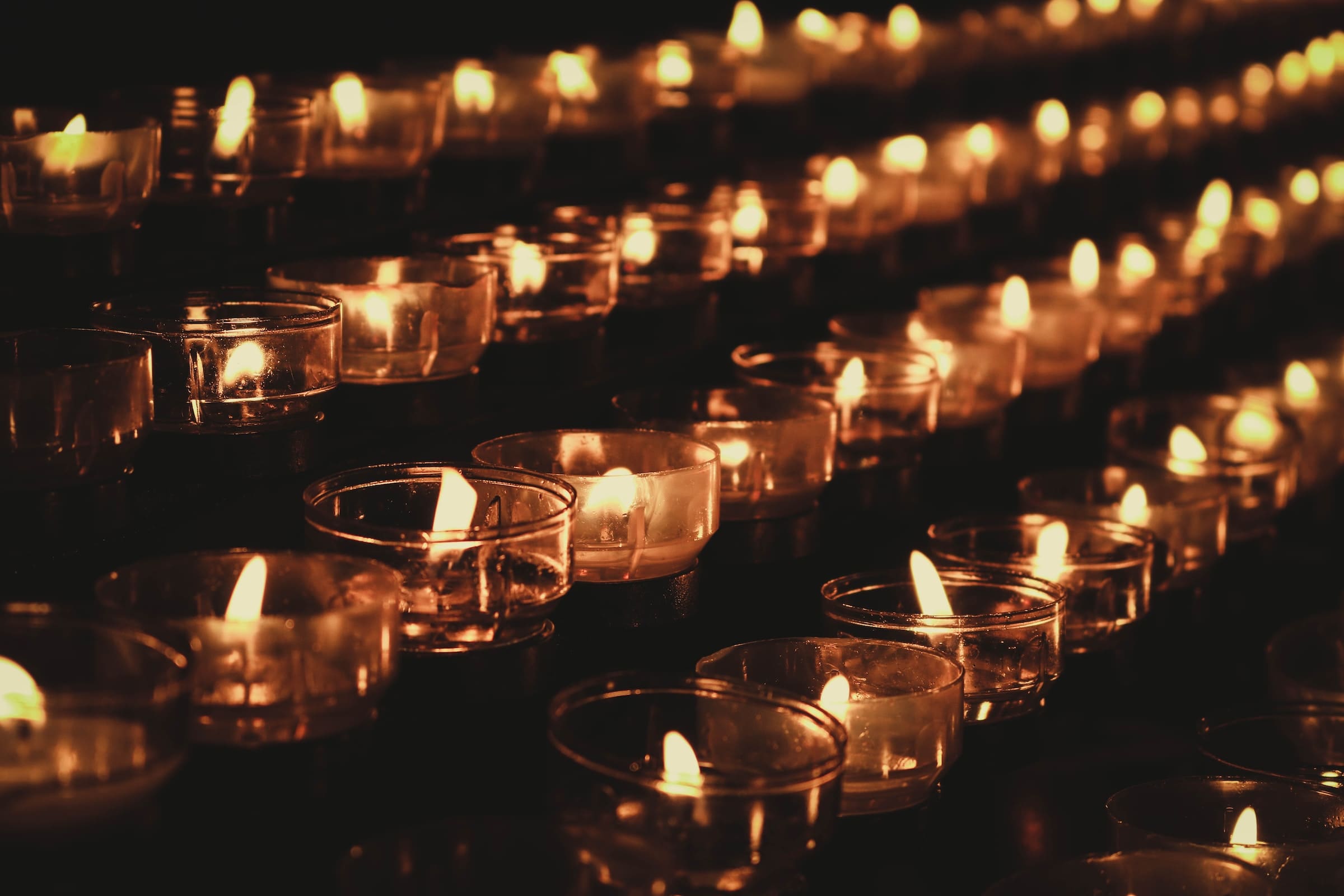by the Rev. Charlie Dupree
Acts of devotion are the ways in which Christians stay attentive to their relationship with Jesus. Acts of devotions may include the spoken, “traditional” types of prayers. Do you remember, though, what prayer is? According to the Book of Common Prayer, prayer “is responding to God, by thought and by deeds, with or without words” (BCP p. 856). There are times when we don’t have the words for prayer. There are also times when prayers are beyond our words. Sometimes, just being in God’s presence is enough, and we assured that this desire pleases God.
The church is a holy space in which we encounter God’s presence through many expressions of art, beauty, music, prayer, worship, and community. I want to share with you a few additional ways that you are invited to be in God’s presence – to be in prayer – at St. Paul’s.
Candle-lighting. Lighting candles is an ancient practice of the church. The flame has always been considered a sign of God’s presence. Near the lectern is a place set aside for you to light candles. You may see people visit this area before the service or during communion. Perhaps you’ll light a candle in memory of a loved one, or for a particular thanksgiving or hardship in your own life. Your prayers combine with the prayers of the community as we put our trust and hope in God.
Being in the presence of Jesus. Near the pulpit is a small chapel set aside for quiet contemplation. An item called a “Tabernacle” is present. It reminds us of the portable tent in which the Hebrews worshiped during their time in the wilderness. This small, wooden cabinet contains the consecrated bread from holy communion, a sign of Christ’s presence in our midst. A candle is lit whenever the bread is in place. Even when the church is dark, the light remains, reminding us of the church’s role to be a light that speaks into the darkness. Here, in Christ’s presence, you may spend time in stillness and quiet prayer. On most Sundays during communion, a priest is present to offer prayers for healing for yourself or for someone else.
In addition to being available on Sunday mornings, these spaces are available throughout the week during office hours. If you have questions about these, or other, spiritual practices, please contact one of your clergy.
See you in church,
Charlie+ (he/him)
